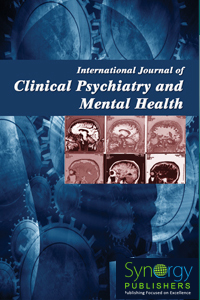
A Psychoanalytic Reading of the “At Risk Mental States” Paradigm (Pages 11-15)
Michele Ribolsi1,3, Giulia Lisi1,2,3, Cinzia Niolu1 and Alberto Siracusano1
1Chair of Psychiatry, Department of Systems Medicine, University of Rome Tor Vergata, Italy; 2Department of Mental Health, ASL Roma 1, Italy; 3Collegio di Clinica Psicoanalitica Onlus, Praxis FCL in Italia
DOI: https://doi.org/10.12970/2310-8231.2020.08.03
Download PDFAbstract: The “At Risk Mental State” or Ultra High Risk (UHR) state is a condition characterized by the presence of psychotic symptoms of short duration and / or low intensity, associated with a marked impairment of social functioning. In this paper, we hypothesize a psychoanalytic reading of this condition, suggesting the hypothesis that it may interpreted according to the Lacanian concept of “ordinary psychosis”. This term refers to forms of psychosis “without clear positive symptomatology”, such as psychoses without hallucinations and delusions, or psychoses with bodily disorders such as hypochondria. In our opinion, these conditions should be not interpreted as “at risk” states, but already stabilized clinical forms, although different in their symptomatic expressions. Beyond the recognition of attenuated or transient positive symptoms, these clinical forms must be recognized through a different framework, such as the foreclosure mechanism, the absence of “the name of the father” and the consequent alteration of signification.
Keywords: At risk mental states, Lacan, Freud, Psychosis, Ultra High Risk. Read more
